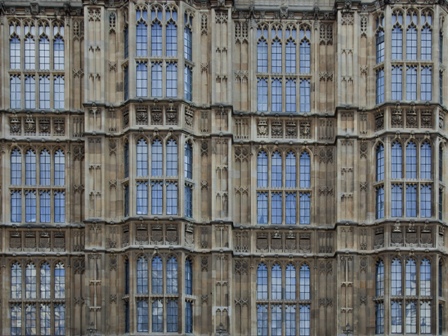What should be done when the social democrats win?
SUGGESTED


The next government of the United Kingdom will have to depart wildly from its manifesto commitments in order to rebuild the nation’s finances. In the closing stages of the election campaign, the media began to highlight the yawning gap between the three main parties’ modest proposals on public spending cuts and the ballooning deficit. But the Conservative, Labour and Liberal Democrat parties stuck to their guns – and continued to argue over trimming a few billion here and there, rather than outlining a radical overhaul of our whole approach to public spending.
The recent proposals put forward by the IEA’s Editorial Director, Philip Booth, suggested looking again at the whole role of the public sector and the scale of government spending from scratch, rather than gently poking at the multi-headed hydra with a small twig. But these proposals were not an option on the ballot paper.
George Osborne did say, on the eve of poll, that he believed the Treasury forecasts amounted to a work of fiction. But if the next government is to argue that, having looked thoroughly at the books, things are even worse than they had imagined, this surely just exposes their present proposals for thrift as even more inadequate.
A major problem for the next government is that even if it decides it wishes to – or has to – pursue a more radical and (at least in the short term) painful approach to public sector cuts than previously contemplated, it will stand accused of lacking a mandate to deliver such change. If the developing scenario in Greece is anything to go by, then the British government will need more than a well thought out austerity package; it will need the authority to deliver it.
A key challenge will be how to coherently extricate oneself from the public spending promises presented to the electorate over the past few weeks. If there is a Conservative-led administration, with or without a working majority, Tory commitments on NHS spending (to continue to increase it in real terms) are likely to become indefensible very quickly. One option might therefore be to hand control of the Department of Health to an Orange Book Liberal Democrat such as Norman Lamb or David Laws and to concede that Conservative policy commitments no longer hold in this area. The Conservatives could focus on their promising (although still lacking) education proposals whilst leaving the problem of health reform to someone else.
Of course, that alone would not be enough to dig Britain out of its fiscal hole. Whatever government emerges from the General Election will be committed to the social democratic consensus, and to the government spending about 50% of national income. But it might just give some room for manoeuvre and give the UK enough time to ensure that the horrible mess in Athens is not repeated in our own cities. That might not be much of a rallying cry, but is probably about the best we can hope for from the next government.
3 thoughts on “What should be done when the social democrats win?”
Comments are closed.




[…] Arquivado em: Economia,Internacional,Media,Política — André Azevedo Alves @ 20:35 What should be done when the social democrats win? Por Mark Littlewood. A major problem for the next government is that even if it decides it wishes […]
It might be a possibility to call in the IMF for an audit, and this should utterly shred Labour and the Statist/Social Democratic fraud just by speaking the unvarnished truth. Then justify the measures to sort it out.
Personally I have said that deep cuts should have been admitted to before the GE, so as to get more “legitimacy” via the vote – a mandate if you will – and so used as another shield against the torrent of action and uprisings that will surely come.
However, now we are where we are, the IMF as independent auditor could well be a good move and a great way to distance the reformer from the creator.
I fear Vince Cable. He will collapse like a rotten rabbit hutch.
If politicians are afraid to tell the truth before a general election because that may cost them votes, it will be difficult for any party to achieve a mandate to make difficult decisions.
Could Gordon Brown, with all his government experience, together with the inexperienced leaders of the other two main parties, now agree on a joint post-election statement of the financial challenges facing the country? It seems very unlikely.
So some kind of ‘audit’ by an objective external body makes a lot of sense, even though the public may not be in a mood to hear bad news.
As to the way forward, yes, some manifesto commitments may have to be jettisoned. My advice would be: ring-fence nothing.